The Year of the Woman
Photography by David Jackson
About 356,000 women call Northeast Wisconsin home. That’s 356,000 people working jobs, raising children, paying bills – doing all the things it takes to make a life. There’s renewed focus on the lives of women thanks to recent movements like #MeToo, #TimesUp and the Women’s March.
In the wake of this national equality reckoning, issues affecting women locally are also at the forefront.
“Nationally we are seeing this very quick social change moment about sexual harassment in the workplace, assault in some cases, so I think for the first time in a long time people are paying attention in a way they weren’t before,” says Becky Boulanger, president of the Women’s Fund of the Fox Valley Region.
Women are at a pivotal point in history and many of the challenges they face are interconnected. The Fox Valley Women’s Fund, in collaboration with the Women’s Funds of Northeast Wisconsin and the Wisconsin Women’s Council, released the 2017 Report on the Status of Women in Northeast Wisconsin last fall. The report covers a range of data from rates of women’s educational attainment and business ownership to political representation.
Boulanger says some of the most striking statistics in the report relate to women and poverty: 59 percent of all Northeast Wisconsin households in poverty are headed by women and 64 percent of households with children in poverty are headed by single mothers.
Poverty has a domino effect on the lives of women, their families and the communities in which they live. With poverty often comes limited educational opportunities, insufficient healthcare options and higher rates of domestic violence.
“The report really helped us clarify where the heart of the issues were,” Boulanger says. “The fact that poverty is overwhelmingly represented by single mothers made us realize that we have to do something different to turn that tide. It may take many years to see the evidence of that, but time’s wasting. We need to start now.”
In response to these findings, the Women’s Fund launched a multi-year initiative to increase the lifelong economic security of women and their families by addressing the needs of young women ages 18-29, the demographic most at risk of experiencing poverty. Starting Point 2.0, in collaboration with Fox Valley Technical College (FVTC) and B.A.B.E.S. Child Abuse Prevention Program, is part of this initiative. This pilot program uses a two-generation approach to increase economic security of single mothers and their children.
The free, 10-week program combines FVTC’s educational resources with the child development programs at B.A.B.E.S. Mothers attend empowerment workshops that focus on topics like career development, healthy relationships and self-esteem building while children cover age-appropriate material to complement what their mothers are learning.
“The idea is that we are addressing those barriers that hold women back from continuing their education and getting that job that will support their families,” Boulanger says.
Alexandra Mischler, a 28-year-old single mother of two from Little Chute, was part of the first Starting Point 2.0 class, which had seven graduates.
“This class has made me realize my value as a person, not just a mother, but as an individual and as a woman,” she says. “It’s definitely a movement.”
Mischler enrolled at FVTC in August to pursue a career as a medical assistant with a focus on nutrition. Her adviser encouraged her to enroll in Starting Point 2.0. At first she was hesitant, but Mischler now sees the impact of the program on her future.
“It’s helped me approach school differently,” she says. “It’s given me more of a understanding about school and it’s helped me stay focused toward my goals.”
One of the biggest rewards of the program was when Mischler’s 9-year-old daughter told her she was proud of her.
“That means she realizes what this is about and that she can be anything she wants to be too,” Mischler says.
Educational attainment is a key factor toward achieving economic security for women, whose poverty rates are higher than those of men across all age groups despite the narrowing wage gap.
According to the 2017 Status of Women in Northeast Wisconsin report, median annual earnings for women in Outagamie County were $38,400 compared to men’s median annual earnings of $51,300. While the wage gap still exists at 75 cents per $1 of men’s earnings, the gap in Outagamie County actually narrowed by 7 cents from 2011.
“Even after all these years we are still talking about pay equity in 2018. That’s ridiculous,” says Elder Williams, executive director of B.A.B.E.S. “What’s in our societal psyche that’s keeping us under?”
Women’s earnings have real consequences for the families that Williams works with at B.A.B.E.S.
“If the parents I work with can get living wage support, then they will be able to build better lives for their families,” she says. “Let’s respect a woman’s educational background, life skills, work experiences and be willing to pay her equitably.”
Williams says connecting working women to the job training necessary for higher wages remains a challenge. Some pay disparity is a result of the lower-wage occupations that are held mostly by women. In Northeast Wisconsin, one in four full-time female employees work in office and administrative support roles with a median annual salary of $33,300. The most common occupation for men is production (including manufacturing) with a median annual salary about 35 percent higher than women in office occupations.
Management occupations, sales and retail, production, and business and financial operations round out the top five occupations for women in Northeast Wisconsin.
Considering this, Katie VanderWielen could be considered an exception to the rule. She has worked in the automotive industry for more than 20 years and currently is the general manager of JumpStart Auto Repair in Appleton, a garage designed especially for female customers. The “garage for good” was started by Harbor House Domestic Abuse Programs and Christine Ann Domestic Abuse Services, with profits from each appointment used to fund auto repairs for domestic violence survivors.
Throughout her career, VanderWielen has had to battle stereotypes as a woman in a male-dominated field.
“We all assume men know everything about cars, so yeah, I definitely have to work harder,” she says. “I’ve had people call up and say, ‘Is there a guy there I could talk to?’ Nope, there’s not. Then you talk to them and they listen to you and they realize you do know what you’re talking about.”
Both of JumpStart’s auto repair technicians are female; however, fewer than 10 percent of all technicians are women. Through JumpStart, VanderWielen hopes to introduce women, especially domestic violence survivors, to these well-paying, family-supporting careers.
“We have a couple [survivors] who come in and want to help with their oil change. They want to learn,” VanderWielen says. “It’s one more way for them to be independent.”
Careers such as these enable women to support families and be independent. For many, business ownership is the ultimate independence, but it’s an arena mostly occupied by men. The 2017 Status of Women in Northeast Wisconsin report indicates that women are slowly increasing their stake in local business. Women own 27 percent of businesses in Northeast Wisconsin, up from 24 percent in 2007. These businesses generate $2.1 billion in annual sales/receipts in the region.
As a young female business owner, Alice Ng encountered her share of difficult moments. Ng was 26 when she and her younger sister, Doris, opened their restaurant, GingeRootz Asian Grille in Appleton.
“It’s a male-dominated industry and being young, vendors would ask to speak to the owner, and I would tell them I am the owner. They would say, ‘Okay, can we speak to your parents?’ assuming my parents must be the real owners,” Ng says.
While these types of assumptions were discouraging, Ng’s biggest struggle as a developing business leader was knowing when and how to ask for help. It’s an issue many female entrepreneurs face as they feel pressure to prove their strength.
“I thought if I had to ask for help I couldn’t be the leader I wanted to be, and the reality is completely opposite,” she says. “It shows you’re human and creates more support because you’re authentic. When I became more vulnerable, it completely changed my business.”
Catherine Tierney has spent her 41-year career rising the ranks at Community First Credit Union (CFCU) in Appleton. She began her journey in 1976 as a teller and receptionist when the credit union had just six employees. Today Tierney serves as president and CEO of CFCU which has nearly $3 billion in assets, 25 locations and 513 employees.
“I’ve had a front-row seat to see an enormous amount of change, and from my vantage point, the Fox Cities in particular have been a pretty great place for women in business,” she says. “There are few local efforts that don’t have a strong female presence and leadership, but it’s been hard fought for. It didn’t happen without a lot of work.”
Tierney says building a network of support is part of the “secret sauce” when it comes to being a successful business leader. One of the best ways to find that network, Tierney says, is by getting involved with charitable organizations. Tierney has served on numerous nonprofit boards including Fox Cities Building for the Arts, Riverview Gardens and Habitat for Humanity Fox Cities.
“I have gained more personally and professionally from that involvement than from anything I’ve done in my career,” she says. “I can’t say enough how beneficial it is to connect with women leaders that way.”
From Tierney’s perspective, a woman’s self-messaging system is as powerful, if not more so, than any external factor.
“The barriers are there and they are real, but the biggest barrier any of us have, not just as women, but people in general, are the stories we tell ourselves,” Tierney says. “It’s about being focused and persistent and not taking no for an answer.”
Women in Politics
State Representative Amanda Stuck from Wisconsin’s 57th Assembly District was speaking to a group of fourth-graders when one student raised her hand and asked if a woman could be president of the United States. Stuck was taken aback by the question.
“To know there is a fourth-grade girl in this day and age who still isn’t quite sure if a woman can be president struck me that we are not doing our job of telling girls they really can do anything, including running for office and being president,” she says. “We need to do more to encourage girls and women to run for office.”
In Northeast Wisconsin, women hold 24 percent of elected offices in local government. In 2016, only two of the 25 elected State Representatives from Northeast Wisconsin were women.
“Women are less likely to run in general because they are more likely to think they don’t know enough or aren’t smart enough,” Stuck says. “You also need a lot of connection to money to run and if women make less than men, we have less connections to that money.”
When Stuck was elected to Assembly in 2014, she was surprised that many of her colleagues assumed she wanted to work on women’s legislation or education.
“Those are great and important issues, but I think women get pigeonholed, and it’s assumed they can’t tackle tough issues like energy policy and jobs,” she says.
Stuck says during her campaign, she received remarks on her appearance, from makeup to her hair color, and got questions about how her role in office would affect her children.
“First, why do I have to explain these things? Second, a man never gets asked these questions, ever,” Stuck says. “Part of it is simply changing our idea of what it looks like to be a leader. We need to support women, donate to them and create networks that train them to run for office.”









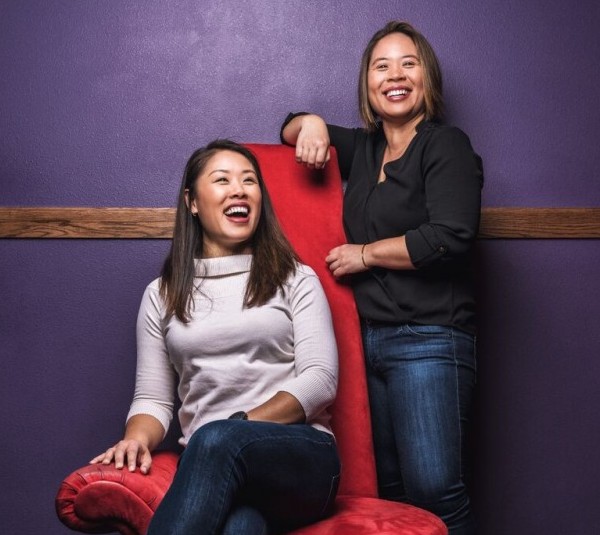

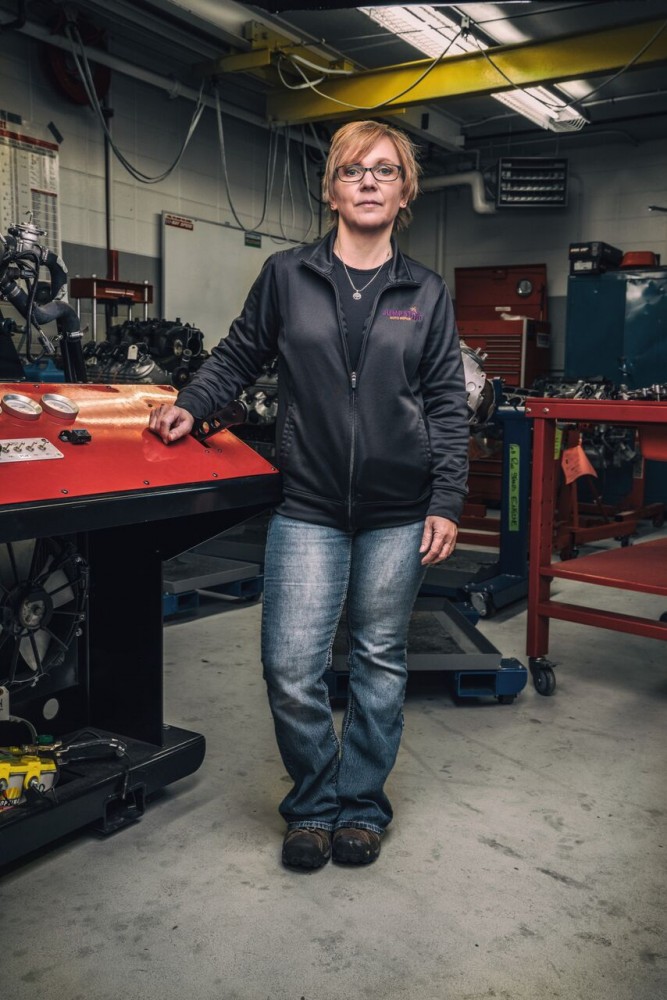
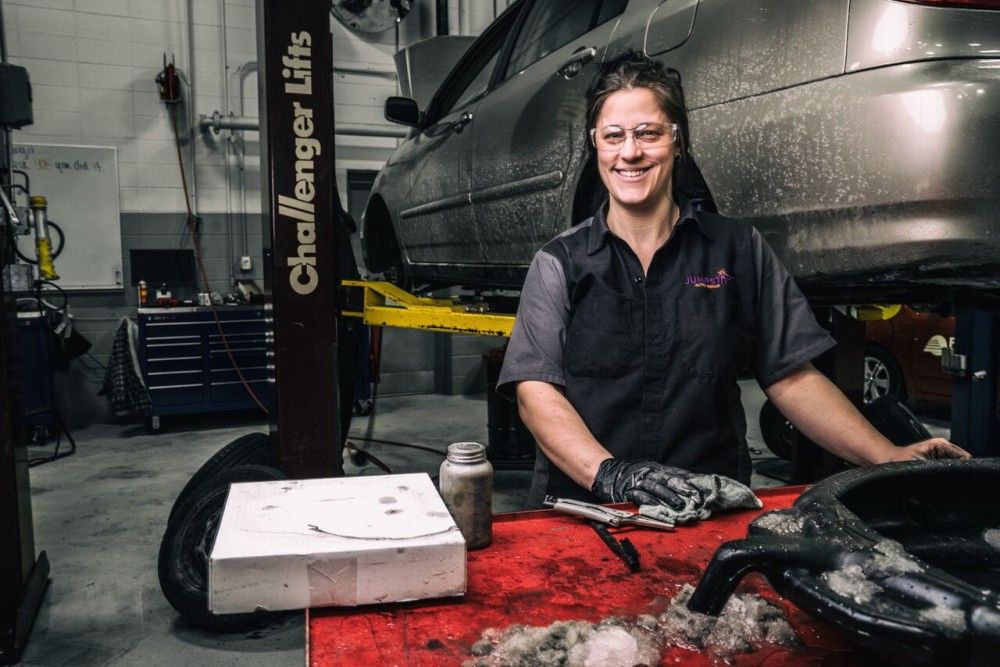
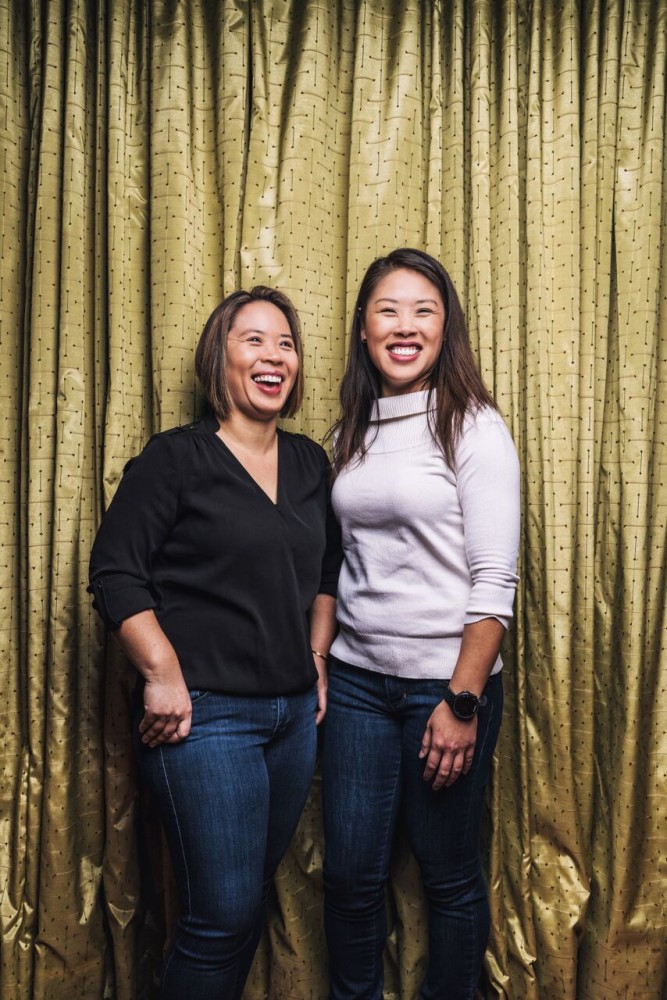
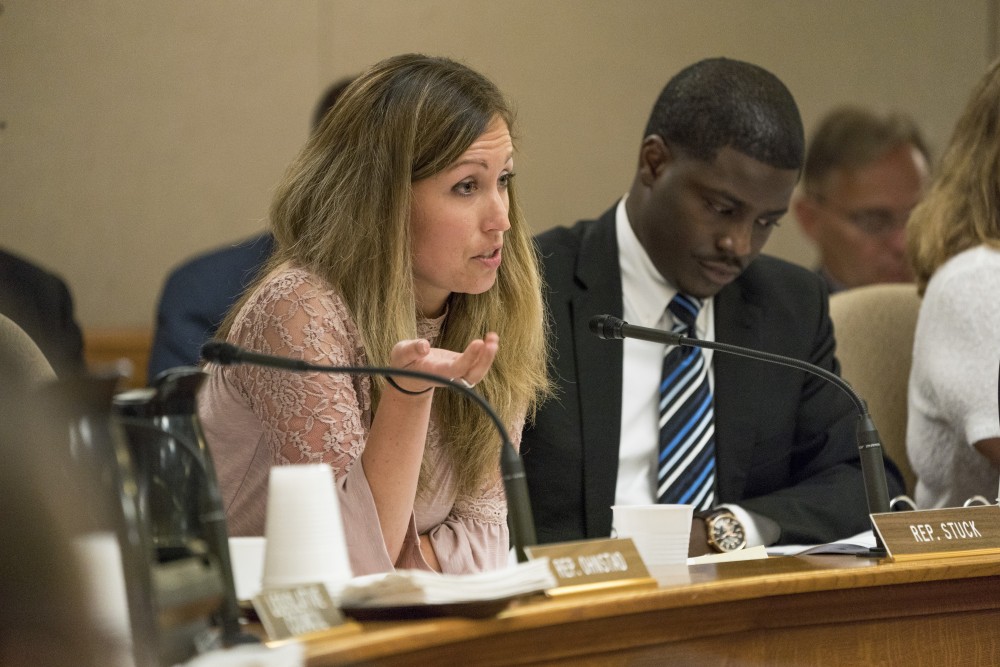

Leave a Comment